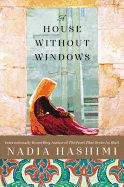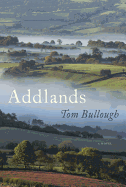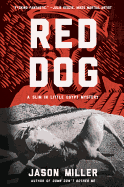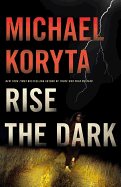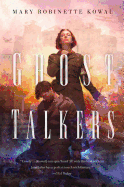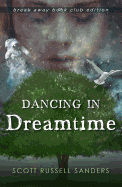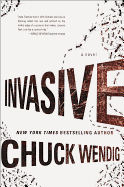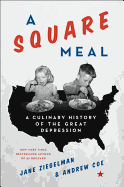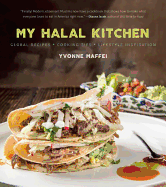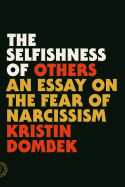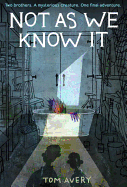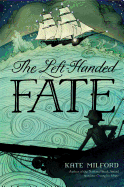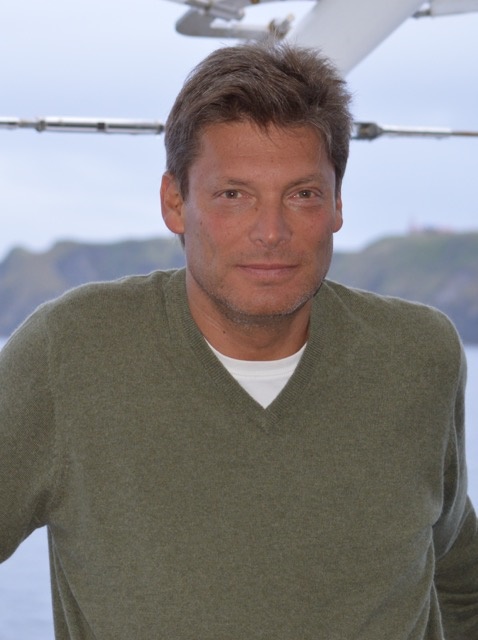 Andrew Gross has written many bestselling thrillers, five of them with James Patterson, and his novels have been translated into more than 25 languages.
Andrew Gross has written many bestselling thrillers, five of them with James Patterson, and his novels have been translated into more than 25 languages.
The One Man (published on August 23 by Minotaur Books), is about an intelligence officer deployed by the U.S. government to break into Auschwitz to extricate Alfred Mendl, a scientist with knowledge that could help the Allies win World War II. The reason Nathan Blum is chosen for this impossible mission: he's a Jew who escaped Poland as a boy and can convincingly go undercover as an Auschwitz prisoner.
Nathan Blum was based on your father-in-law, who passed away in February. What was his reaction to your book?
My father-in-law came to this country in April of 1939, six months before the start of the war. He never knew the fates that befell any of his family. He was the only one in his extended family to survive. His entire life, in spite of some success, he carried a mantle of sadness over him. No one ever knew fully why.
He never talked about his family or his upbringing back in Poland. My wife and her brother knew nothing more than the names of their grandparents. In 1941, when America entered the war, he enlisted in the army of his new country, and because of his facility with languages, was placed in the [Office of Strategic Services]. He never spoke about his duties there, either.
So The One Man is about an escaped Jew who is convinced to go back to where his family was murdered to bring out the one man the Allies feel can win them the war. In many ways I wrote the story I always imagined he would tell.
A few months before he died, my wife read him the opening chapters, about a man built off of him, and with tears in his eyes he took her hand and said, "Lynnie, I have some things to talk to you about."
What were those things? How closely did his stories resemble those in The One Man?
He just talked about how it was always too painful for him to bring up the past (which was more than he ever admitted prior; he would just ignore the questions). How he felt badly my brother-in-law Greg and my wife were so disconnected from their past. I know he told her that his father was a horse trainer. (A Jewish horse trainer--ha!) Things like that. He never told her about the cache of letters, which she found later, where it came out his mother always questioned him: "Why have you not written us?"
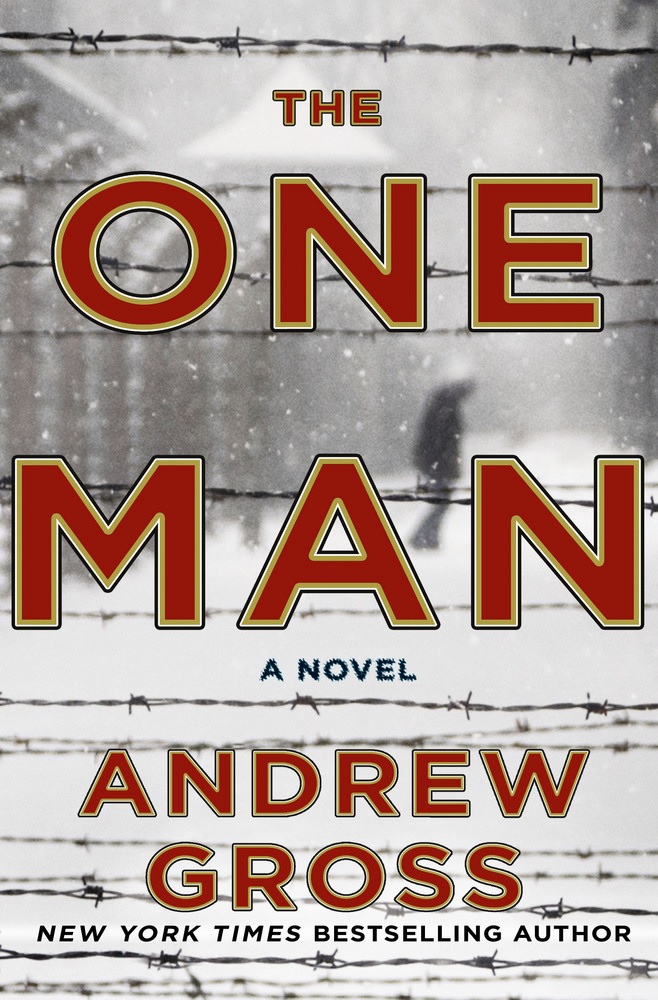 Tell us about those letters.
Tell us about those letters.
After he died, we found a cache of letters written to him by his mother under Nazi occupation, which, incredibly, he never shared. They showed a modern, confidant, funny woman. In these letters my wife and her brother met their grandmother for the first time.
Many of the letters asked imploringly why he had never written them back. No doubt his letters were never delivered to the ghetto. So we began to understand the sadness he carried with him, the feeling that his parents died feeling he had never written them. So after his death, his life finally began to make sense. It's incredibly sad.
It is. How do you think your book differs from others about the Holocaust and Auschwitz? What unique perspective do you think you provided?
The last thing I tried to do was do in fiction what countless eyewitness testimonies have documented in fact. Yet most of what takes place in the book was true or based on truth through stories passed on to me. What is critical, though, is that I tried to focus on Nathan's heroism, not the camp's atrocities, which have been even more compellingly depicted elsewhere. I tried to make the story uplifting, not enervating.
You write about advanced math and science with authority in this novel. How much of it was information you already knew and how much was research?
That's a compliment. I'm someone who barely muddled through eighth-grade earth science. The key was to make atomic science interesting and conversational, even in short doses, and to do it in dialogue, so it becomes part of the repartee between Alfred and Leo [a chess wunderkind Alfred befriends] that defines their relationship. But still, it was important that readers understand just what it is Alfred knows that's so essential.
You've said One Man is a departure for you. Besides being a very personal story, how else does it differ from your previous books?
It's a departure in setting and style. In the past I've written pace-driven stories and I generally erred in bias on the side of plot as opposed to character. Yet I always wanted to write a richer story with bigger bones. What richer subject is there in humanity and theme? To do so, it had to have a much more atmospheric texture and sense of historical detail, and deeper palate of character than I ever allowed myself. Though it moves briskly, I do think this is a book where the people you meet stay with you for a long time. Or so I've heard.
How did you convince your reps--agent, publisher, publicist, etc.--that this was the right novel for you to write at this time?
The easiest part was that my nine-book contract had come to an end. I had to [write this book] for my own artistic liberation. I believed in this story from its first day. The hard part, as you say, was convincing everyone else that I could 1) handle the material, 2) pull it off, and 3) find a publisher eager to take the risk and the ride with me. Which I have. It was fraught with risks, both financial and market-wise, but not so much of a risk as when I got in this business in the first place!
Now that you've written such a departure, where will you go from here?
Another World War II story, a tale of incredible individual heroism and endurance, built off the British and Norwegian raid that ended the Nazi efforts to acquire the atomic bomb. It's a little more Alistair MacLean than Schindler's List, so to speak, but very inspirational and thrilling. --Elyse Dinh-McCrillis, blogger at Pop Culture Nerd
Andrew Gross: Finding Inspiration in Personal History
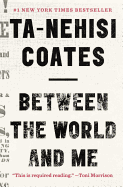 Ta Nehisi-Coates wrote Between the World and Me as a powerful letter to his son, reflecting on what it means to live--and to face dying--as a black man in the United States today. Coates acknowledges and addresses the tribulations without shying away from hard truths. "I would have you be a conscious citizen of this terrible and beautiful world," he writes--and acknowledging the truths in this National Book Award winner is an important first step in that consciousness.
Ta Nehisi-Coates wrote Between the World and Me as a powerful letter to his son, reflecting on what it means to live--and to face dying--as a black man in the United States today. Coates acknowledges and addresses the tribulations without shying away from hard truths. "I would have you be a conscious citizen of this terrible and beautiful world," he writes--and acknowledging the truths in this National Book Award winner is an important first step in that consciousness.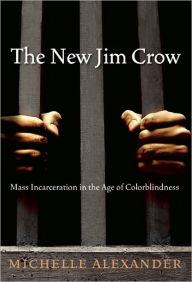 Recognizing the many flaws in the country's criminal justice system is crucial to continuing on the path to conscious citizenship. Michelle Alexander's 2010 book The New Jim Crow addresses the systemic racism of the United States justice system, drawing parallels between the Jim Crow laws of the late 19th and early 20th century and the War on Drugs that grew up after the collapse of Jim Crow in the 1960s. Importantly, Alexander's study addresses not only the causes of incarceration, but the lasting impact of a criminal record on an individual's life. Those interested in a deeper dive into the history of the War on Drugs--and the ways it has been played out not just in the U.S., but across the globe--will be interested in Johann Hari's Chasing the Scream.
Recognizing the many flaws in the country's criminal justice system is crucial to continuing on the path to conscious citizenship. Michelle Alexander's 2010 book The New Jim Crow addresses the systemic racism of the United States justice system, drawing parallels between the Jim Crow laws of the late 19th and early 20th century and the War on Drugs that grew up after the collapse of Jim Crow in the 1960s. Importantly, Alexander's study addresses not only the causes of incarceration, but the lasting impact of a criminal record on an individual's life. Those interested in a deeper dive into the history of the War on Drugs--and the ways it has been played out not just in the U.S., but across the globe--will be interested in Johann Hari's Chasing the Scream. 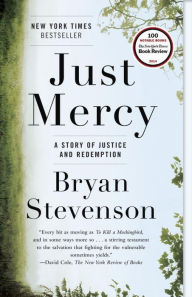 Bryan Stevenson, a lawyer working with inmates on death row, writes about his experience in Just Mercy, and about the many ways it has prompted him to be merciful in his judgment of others. This mercy, he argues, is the only way to elevate the broken among us--and to elevate ourselves, as well: "Simply punishing the broken--walking away from them or hiding them from sight--only ensures that they remain broken and we do, too. There is no wholeness outside of our reciprocal humanity." --Kerry McHugh, blogger at Entomology of a Bookworm
Bryan Stevenson, a lawyer working with inmates on death row, writes about his experience in Just Mercy, and about the many ways it has prompted him to be merciful in his judgment of others. This mercy, he argues, is the only way to elevate the broken among us--and to elevate ourselves, as well: "Simply punishing the broken--walking away from them or hiding them from sight--only ensures that they remain broken and we do, too. There is no wholeness outside of our reciprocal humanity." --Kerry McHugh, blogger at Entomology of a Bookworm


 Andrew Gross
Andrew Gross Tell us about those letters.
Tell us about those letters.